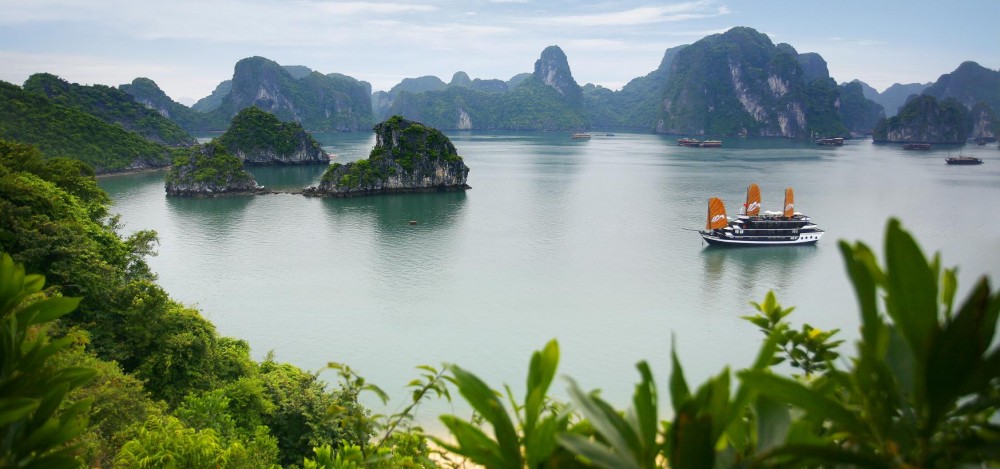In Saigon, one of the first activities we participated in was a scavenger hunt with Vietnamese college students. We divided into smaller groups and were handed a list of places to go and items to pick up. We set off on the race, and my team consisted of three of us girls and the Vietnamese student. The student we were with insisted we call her Jane. We each asked her questions as we searched for these various places and items, and she was clearly into the actual scavenging as she had already planned a route for us to save time. We learned that Jane studies English, and and that she is not from a rural town a few hours from Saigon. In return, she asked us about our travels. She noted how different Saigon must be for us, how unused to the traffic we probably were, and how we must be enjoying this change of scenery. She also asked us how many countries we had each been to, and was amazed by our answers. She told us about her dream of travelling, and I remembered how students in Morocco – I went for Winter Study this year – had asked similar questions and reacted similarly to my response. That ‘tourist’ feeling hit me hard at that moment, and I kept thinking about the interaction throughout the trip. Since we were less concerned with finishing first, we stopped her to ask about propaganda posted around the city. She did her best to translate for us, although she did say that the Vietnamese on the posters had academic jargon that she did not completely understand. When we returned to the hotel, the rest of the students chatted with us until the dinner we had planned as a group. I casually mentioned to one of the girls that there were many fruits I hadn’t tried yet (or even heard of) and that I was looking forward to trying more. After this discussion, we quickly got ready and went to dinner with the students. I had forgotten about the conversation I had with the student about the fruit.
This was the only time we met Jane. We met some of the other students twice more. One night, they – two girls and a boy – took us to Chinatown, but not before bringing me the fruit I had asked for! After exploring Chinatown and having dinner, they dropped us off at the hotel. I thought that would be the last time we would see them, but we had one more dinner together at a restaurant that had become one of our favorites in Saigon. At the end of the dinner, I did not expect them to be so upset at the thought of not seeing us again. They didn’t want to leave and started to get a little emotional. I think we were all touched, albeit surprised. I personally didn’t feel like I had contributed much to their lives; in fact, I felt that they had been so generous to us but as tourists, we couldn’t quite reciprocate. One of the girls continued to stay in touch with me throughout the trip, asking to hear updates and telling me how much she missed all of us. Though I appreciated this about her, it also felt out of place to me. I felt bad for thinking of myself as less close to her as she thought she was to me. But it also occurred to me that her, and my, feelings about this could be due to so many cultural, linguistic, and other factors. For me, meeting these students was an integral part of the trip precisely because it made me think about all these factors.
Of course, in re-telling this story I do not intend to make generalizations about Vietnamese students or even about the students we met specifically. My interactions with the students did, however, make me think about how they must have seen us, and also wonder about what my peers on the trip were thinking about these students and their feelings towards us. Now that we are back in America, I am still thinking about what these relationships mean and what a privilege it is to have traveled to a new country and been taken care of by these students who knew nothing about us. I am truly thankful for their hospitality, and still wrestling with understanding these stories that I have shared.
